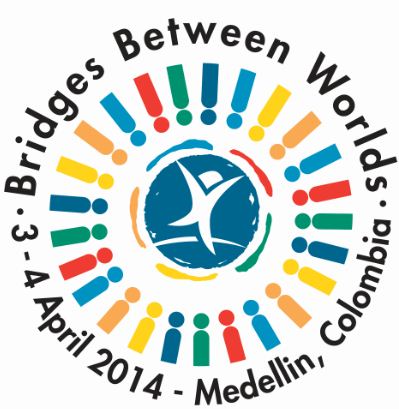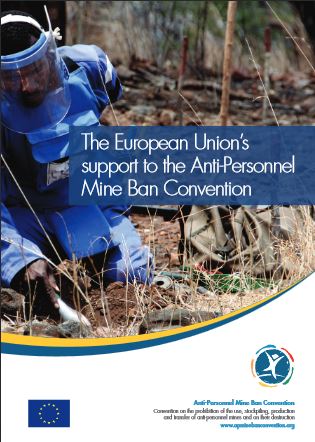|

On 13 November 2012, the Council of the European Union (EU) adopted the Decision in support of the implementation of the Cartagena Action Plan.
The Convention’s Implementation Support Unit (ISU) was entrusted to serve as the technical implementer for the Council Decision.
Through the Council Decision, the EU sought to: - promote the universalization of the Convention and its norms,
- support efforts on the part of States Parties to implement the victim assistance aspects of the Cartagena Action Plan,
- support efforts on the part of States Parties to implement the mine clearance aspects of the Cartagena Action Plan, and
- demonstrate the ongoing commitment of the EU and its Member States to the Convention.
As technical implementer, the ISU has carried out the following projects:
Victim assistance- The ISU assisted Ethiopia, Peru and Tajikistan in convening national workshops to enhance the implementation of their national disability plans, to ensure greater inclusion of persons with disabilities and to better meet the needs of landmine survivors.
- On 3-4 April 2014, the ISU supported Colombia in convening Bridges between Worlds, a global conference that aimed to advance the international community’s understanding regarding the place of assistance to victims and survivors of anti-personnel mines and other explosive remnants of war in broader contexts.
Mine clearance - In 2013, the ISU supported Peru and Ecuador in convening a national workshop to assess their efforts in demining their common border.
- In November 2013, the ISU supported the Democratic Republic of the Congo in convening a national workshop to take stock of its mine clerance progress and assisted the Democratic Republic of the Congo in the preparation of its request for an extended deadline.
- As well in 2013, the ISU assisted Colombia and Tajikistan in reviewing steps taken to fulfil commitments made in the request they submitted for extended mine clearance deadlines.
- In 2014, the ISU provided support to Angola.
Universalization and implementation
The ISU supported high level engagement of States not party to the Convention, - The ISU in collaborating with the US Campaign to Ban Landmines convened on 19 February 2014, a symposium in Washington, DC on US landmine policy, with the participation of the Convention's Special Envoy HRH Prince Mired of Jordan.
- The EU Council Decision called for high level envoys to participate in another major event to draw attention to ongoing efforts to universalise and implement the Anti-Personnel Mine Ban Convention. The ISU also hosted a one-day universalization seminar in Geneva with representatives of 13 States not party to the Convention for in-depth discussions on the humanitarian problems caused by the use of anti-personnel mines, in which ICRC, ICBL, border security experts and His Royal Highness Prince Mired of Jordan participated.
- On 19 to 22 May 2014, His Royal Highness Prince Mired of Jordan also participated in one such event: Maputo +15.

- At the 2014 Maputo Review Conference, the Implementation Support Unit distributed a publication that provides an update on EU Council Decision activities and on broader EU support to the Convention:
- The European Union's support to the Anti-Personnel Mine Ban Convention (click on image to view or download).
The EU Council Decision calls for high level envoys to participate in another major event to draw attention to ongoing efforts to universalise and implement the Anti-Personnel Mine Ban Convention. On 19 to 22 May 2014, His Royal Highness Prince Mired of Jordan will participate in one such event: Maputo +15. - See more at: old.apminebanconvention.org/eu-council-decision/
- The ISU carried out a study on border control and management without anti-personnel mines in order to support future universalization efforts.
Implementation visits- HRH Prince Mired of Jordan also engaged in various visits to encourage States Party to continue their efforts, in particular, States that benefited from the EU Council Decision support including Ecuador and Peru.
|

Bridges between Worlds was a global conference that aimed to advance the international community’s understanding regarding the place of assistance to victims of mines and other explosive remnants of war in broader contexts.
It was hosted by Colombia and supported by the Implementation Support Unit (ISU) with financial support provided by Colombia and the European Union through its Council Decision in support of the 2010-2014 Cartagena Action Plan.

Maputo +15 was a series of activities taking place during four days, supported by the European Union on the 15th anniversary of the signing of the Convention. The series of moderated talks aimed to highlight key issues put under consideration during the Maputo Review Conference.

|





